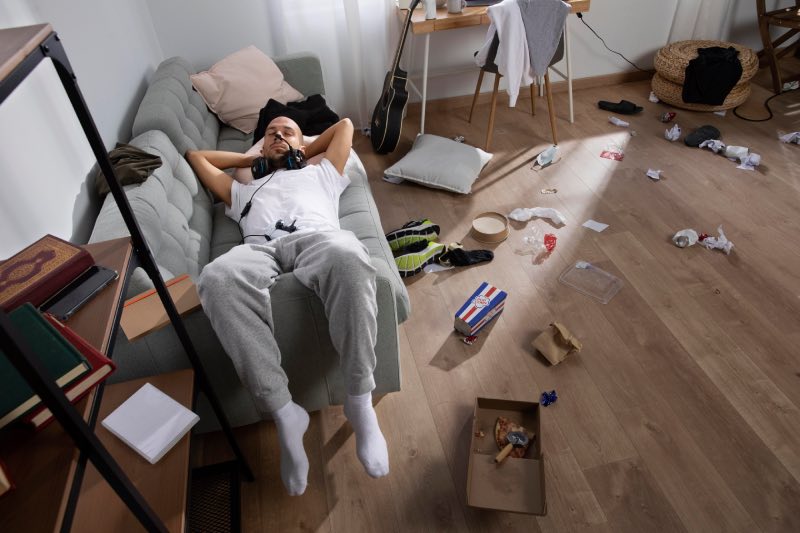For some, clutter might seem like a harmless mess, a few too many items scattered around the house. However, in many couples, it’s become a hidden source of tension. It’s something that builds over time until it begins to erode the very foundation of the relationship.
From mismatched socks to piles of unopened packages, clutter is quietly becoming an emotional wedge. It’s not just about untidiness; it’s about space, control, and feeling overwhelmed in your own home. And when two people have different tolerance levels or expectations around mess, the result is often silent resentment or covert purging missions.
When Clutter Becomes a Relationship Strain
A growing number of Americans are facing what experts now call “clutter fatigue.” It’s not unusual for one partner to secretly toss old T-shirts or donate mystery boxes while the other isn’t looking. In extreme cases, arguments about clutter escalate into power struggles over space and decision-making. Couples report everything from hiding purchases to re-buying things they already own, just to avoid the hassle of finding them.

In fact, one survey found that 71% of people admitted to repurchasing items simply because they couldn’t locate the original. That statistic points to something deeper than disorganization; it highlights a loss of control, not just over objects, but over time and mental clarity.
Clutter is often driven by more than laziness. Emotional attachment, fear of waste, or even the dopamine hit of online shopping can make it difficult to let go of things. Add in the pressure of modern life, limited storage, busy schedules, and social media-fueled consumerism, and the problem compounds.
How can you prevent it from breaking your relationship
Experts recommend small, consistent strategies to manage the chaos before it becomes a relationship flashpoint. One simple tactic is the “five-year rule”: if you haven’t used something in five years, it probably doesn’t need to stay. Others turn to platforms like Facebook Marketplace to sell or donate excess belongings, finding relief in the knowledge that someone else will use what they no longer need.
Another thing you can do to prevent clutter from taking over your house is to have a regular clean-up. Reorganizing drawers, cleaning up spaces you’ve been using, like your desk, and getting rid of small things you don’t use will keep your house clean and organized. Like this, you would create the perfect environment for a couple to live in!
